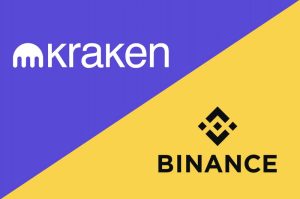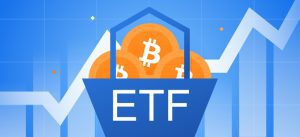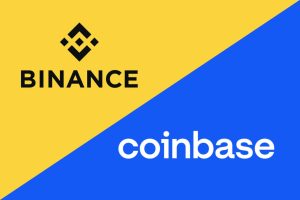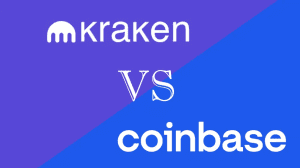What Are Decentralized Autonomous Organizations (DAOs)?

The rise of blockchain technology has paved the way for innovative organizational structures, and one of the most exciting developments is the emergence of Decentralized Autonomous Organizations (DAOs).
This comprehensive guide will explore what DAOs are, how they operate, and their purpose. We also highlight their advantages and disadvantages and the notable “DAO” event. And we cover everything in plain English, suitable for experts and beginners alike.
DAO Definition in Summary
Read our short guide for quick information:
- Decentralized Autonomous Organizations (DAOs) are innovative organizational structures leveraging blockchain and smart contracts for decentralized and autonomous decision-making.
- They rely on smart contracts, issue tokens to participants, and use token-weighted majority voting to make collective decisions.
- Their purpose includes eliminating centralized control, efficient resource management, fostering inclusivity, and ensuring transparency through blockchain technology.
- Pros include transparency, autonomy, inclusivity, and efficiency, while cons involve technical challenges, regulatory uncertainty, and the risk of exploitation.
- “The DAO” is a notable example of a DAO that disbanded in 2016 due to a vulnerability in its smart contract code, leading to a hard fork in Ethereum to reverse exploited transactions and the creation of Ethereum Classic.
What is DAO and How Does It Work?
A Decentralized Autonomous Organization (DAO) is a novel organizational structure that relies on blockchain technology and smart contracts to operate without a centralized authority. It represents a group of individuals who come together to make collective decisions and manage resources in a transparent, decentralized, and autonomous manner. Here’s how it works:
- Smart contracts: DAOs are powered by smart contracts, self-executing pieces of code that automatically execute predefined rules and decisions. These contracts govern the organization’s operations and financial transactions.
- Token holders: DAOs typically issue tokens to users who become stakeholders in the organization. The number of coins people own often determines voting power and influence over decisions.
- Decision-making: Participants use their tokens to vote on various proposals, ranging from financial allocations to protocol upgrades. Then, the token-weighted majority determines the outcome of each vote.
- Autonomy: Once established, DAOs can operate independently, executing decisions and transactions without centralized intermediaries.
Purpose of a DAO
Decentralized Autonomous Organizations primarily aim to establish decentralized, community-driven entities capable of managing resources, governing protocols, and facilitating transparent decision-making.
Firstly, they seek to eliminate the need for centralized authorities, fostering democratic decision-making processes among stakeholders. This decentralization ensures that no single entity or individual wields undue influence or control over the organization’s operations.
Secondly, DAOs excel in resource management. They can efficiently manage and allocate resources, including funds or digital assets, for various purposes such as project development, research, or community initiatives. Moreover, they automate the allocation process by employing smart contracts, ensuring transparency and fairness.
Thirdly, DAOs promote open participation. They create an inclusive environment where anyone can actively participate in the organization’s decision-making processes. As a result, it fosters a sense of community and ensures that diverse perspectives can contribute to the organization’s goals.
Lastly, transparency is a fundamental characteristic of DAOs. These organizations operate on transparent, publicly auditable blockchain networks, guaranteeing that all transactions and decisions are accessible for scrutiny by participants and the wider public. This transparency instills trust and allows for accountability within the organization.
Pros
- Transparency: DAOs operate on public blockchains, providing full transparency and auditability of all transactions and decisions.
- Autonomy: Once established, they operate autonomously without centralized control, reducing the risk of censorship or manipulation.
- Inclusivity: DAOs allow for open participation, enabling a diverse range of individuals to contribute to decision-making and resource allocation.
- Efficiency: Smart contracts streamline decision execution and resource management, reducing bureaucracy and administrative overhead.
Cons
- Technical challenges: DAOs are relatively new and face technical challenges like scalability and security vulnerabilities.
- Regulatory uncertainty: The regulatory environment is evolving, and compliance can be challenging, especially for cross-border operations.
- Risk of exploitation: While decentralized, DAOs are not immune to malicious actions, and weaknesses can be exploited.
Why Did The DAO Get Disbanded?
“The DAO” is a famous example of a DAO that faced a critical setback. In 2016, The DAO launched as a crowdfunding project on the Ethereum blockchain, raising over $150 million in Ether (ETH). However, bad actors exploited a vulnerability in its smart contract code, resulting in the theft of a significant portion of the funds.
To prevent further losses and protect the network’s integrity, the Ethereum community agreed to perform a hard fork that effectively reversed the exploited transactions. This event led to the Ethereum and Ethereum Classic (ETC) split, as some community members disagreed with the decision to change the transactions.
Frequently Asked Questions
Find out more about Decentralized Autonomous Organizations (DAOs).
Can anyone create a DAO?
Anyone can create a DAO by deploying smart contracts on a blockchain platform that supports smart contract functionality.
Are DAOs subject to regulation?
The regulatory status of DAOs varies by jurisdiction and depends on their activities. Some may be subject to securities or financial regulations.
Can DAOs exist on multiple blockchains?
Participants can create DAOs on various blockchain platforms, each with its set of smart contract capabilities.
How are disputes resolved in DAOs?
Disputes in DAOs are typically resolved through on-chain voting mechanisms, where token holders vote on proposed solutions or arbitration processes.
Can a DAO’s code be upgraded or changed?
DAOs can implement upgrades or changes to their smart contract code, but these modifications typically require consensus among token holders through on-chain voting. However, the immutability of some DAOs may restrict code changes.
DAO Explained – Final Words
Decentralized Autonomous Organizations (DAOs) represent a paradigm shift in organizational structures, offering transparent, autonomous, and community-driven governance models. While they hold great promise, they also face technical, regulatory, and security challenges.
The infamous case of “The DAO” serves as a reminder of the complexities involved in DAO operations and the importance of community consensus in their functioning.
Please note that cryptocurrency investments carry inherent risks. Therefore, it’s essential to conduct thorough research and seek professional advice before engaging in any financial transactions.





